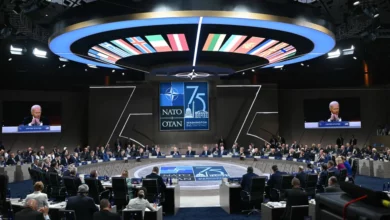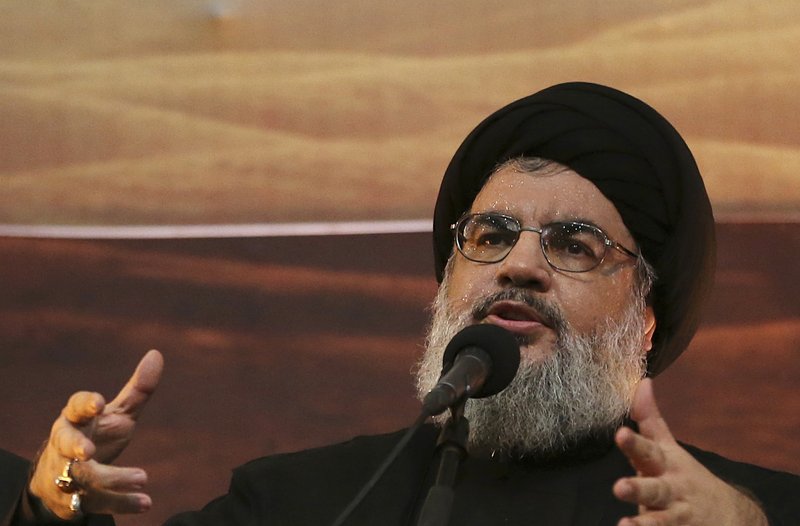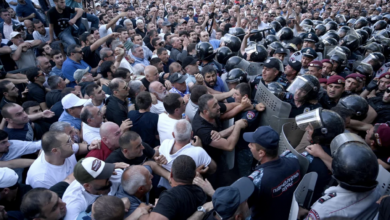Back in 2004, a year after the US invasion of Iraq, accounts and photographs of murder, rape and torture at Abu Ghraib prison by American forces and private contractors sent a shudder throughout the world. The scandal revealed that not only were US soldiers replicating the same kind of behavior that they were supposed to put an end to by overthrowing Saddam Hussein's regime, but that some senior officers encouraged it and tried to cover it up. The role that private contractors played in the war was then seen as shocking and a perversion of the laws of war, since mercenaries are not bound by them. After the Bush administration brushed aside the lack of a UN mandate and boasted of a “cakewalk” invasion, Abu Ghraib was the first major blow to its delusion that it was a force for good.
Fast-forward six years later, and similar outrages documented in WikiLeaks's recently released Iraq War Logs are a flash in the pan of the news cycle at best. Dozens of civilians mistakenly killed at checkpoints, the widespread use of torture and extrajudicial killings by Iraq’s security forces, the turning of a blind eye to this abuse by international troops being condoned by senior officers, that horrible video of children being killed from an Apache helicopter–none of this has evoked a fraction of the emotion unleashed by Abu Ghraib.
That Iraq is a nasty place is thought to be old news. Some say a place ruled by Saddam Hussein for 25 years could not be otherwise, and are merely relieved that the violence during the height of Iraq’s civil war, between 2005 and 2007, has been tempered. Others think this is the natural result of an invasion that should have never taken place and an occupation that can only maintain itself through alliances with thugs.
Either, or both, views may be right–but this is besides the point. The most astounding fact to come out of the WikiLeaks release may be how casually it was received by international public opinion.
There is something strange going on when the leak of thousands of documents that describe routinized killing and torture creates a debate on whether publishing the leaked memos is the right decision or whether it endangers the lives of soldiers. The Pentagon says it is “extraordinarily disappointed” that WikiLeaks chose to release the videos. But WikiLeaks is not an American organization and has no legal reason to keep American secrets. The moral argument against WikiLeaks–that soldiers’ lives could be threatened– is weak since the Pentagon has not suggested how information about brutality, under-reported civilian casualties and other outrages could otherwise be disclosed. The fact that–unlike after the Abu Ghraib scandal–the Pentagon is not carrying out any investigations does not inspire confidence, and neither does it calling the leaks, but not the actions documented in them, “shameful.”
There is also something strange going on when some television news channels and newspapers focus more on WikiLeaks founder Julian Assange and the internal workings of his website than the deaths of thousands of people. Assange may be an interesting character, with his hacker persona straight out of a bad high-tech thriller, but his personal foibles or how he runs WikiLeaks is not what’s at stake here. A recent widely-circulated video of an aborted CNN interview with Assange–in which he walks out in disgust when the interviewer wants to talk about him rather than the leaks–says a lot about the channel’s priorities. One wonders, had a CNN journalist obtained gruesome helicopter footage of children being shot or a copy of “Frago 242,” the order which tells US soldiers to record–but not to stop–abuse by Iraqi forces, whether the channel would have grilled its own CEO about his management style.
But perhaps the strangest thing is that so many analysts, journalists, Pentagon officials–even as they complain about the WikiLeaks release–shrug that it contains nothing new and act as if the whole thing inspires deep boredom. In a sense, this is the reaction of us all: it is not as if we didn’t know things in Iraq continue to be bad, even if we may be relieved that they are somewhat less bad than they used to be. We know about the privatization of military force, we know about the death squads of the new Iraqi regime, we know that civilian casualties and friendly fire are the inevitable result of war. We just don’t care that much, and have long given up on being outraged by what’s going in Iraq.
“Nothing new here” is not just an attempt to convince journalists that the WikiLeaks release is not newsworthy, or even just a sign of “war fatigue.” It’s a sign that the deeply unusual circumstances of the wars waged by the Bush administration–with all the abuses they were bound to engender because of their open-ended and imperial nature–are the new normal.
Issandr El Amrani is a writer on Middle Eastern affairs. He blogs at www.arabist.net. His column appears every Tuesday.




